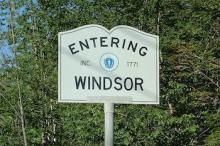From Coast to Coast, States Partner With Community Networks to Deploy Emergency Hotspots
As the novel coronavirus has spread across the United States, so too have efforts to bring Internet access to digitally disconnected households during a time of nationwide social distancing. Washington and Massachusetts are on different coasts, but both states are working with publicly owned broadband networks to deploy emergency Wi-Fi hotspots in underserved communities in response to the Covid-19 pandemic.
In Washington, a state-led initiative is deploying hundreds of new Wi-Fi access points with the help of community networks, including Northwest Open Access Network (NoaNet), a statewide middle-mile network, and several Public Utility Districts (PUDs). And on the other side of the country, Massachusetts has enlisted the help of municipal network Whip City Fiber to establish Wi-Fi hotspots in communities with poor connectivity.
The drive-up public hotspots will allow residents of both states to complete online school assignments, apply for unemployment insurance, and connect with healthcare providers, among other essential tasks.
“We’ve all been in a position where we understand to connect to the world during this really challenging time, Wi-Fi is essential,” said Dr. Lisa Brown, Director of the Washington Department of Commerce, during a livestreamed launch of the state Wi-Fi initiative.
Washington Partners with PUDs for Wi-Fi



